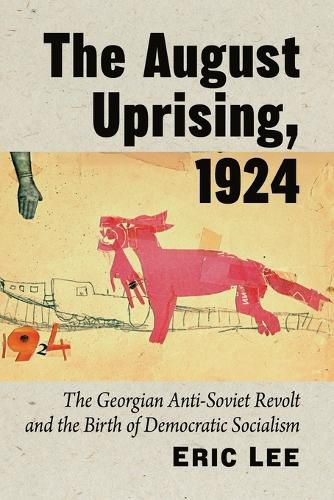Readings Newsletter
Become a Readings Member to make your shopping experience even easier.
Sign in or sign up for free!
You’re not far away from qualifying for FREE standard shipping within Australia
You’ve qualified for FREE standard shipping within Australia
The cart is loading…






For three years following the Russian Revolution, the small South Caucasian country of Georgia was a democracy, but Stalin later ordered the Red Army to invade and to bring the country back under Russian rule. Communist attacks on political opponents, trade unions, cooperatives, and even the church sparked resistance, and an armed uprising broke out across the nation in 1924. It was swiftly crushed, with massacres of thousands, including hostages. Social Democratic and Labor parties across Europe reacted with shock and indignation. Soviet opponents began to describe communism as "red fascism" and their own movement as "democratic socialism." What followed--including Socialist support for the creation of NATO--resulted from the Georgian uprising and its aftermath. After the Russian invasion of Ukraine a century later, the long-forgotten Georgian experience seems more relevant than ever.
$9.00 standard shipping within Australia
FREE standard shipping within Australia for orders over $100.00
Express & International shipping calculated at checkout
For three years following the Russian Revolution, the small South Caucasian country of Georgia was a democracy, but Stalin later ordered the Red Army to invade and to bring the country back under Russian rule. Communist attacks on political opponents, trade unions, cooperatives, and even the church sparked resistance, and an armed uprising broke out across the nation in 1924. It was swiftly crushed, with massacres of thousands, including hostages. Social Democratic and Labor parties across Europe reacted with shock and indignation. Soviet opponents began to describe communism as "red fascism" and their own movement as "democratic socialism." What followed--including Socialist support for the creation of NATO--resulted from the Georgian uprising and its aftermath. After the Russian invasion of Ukraine a century later, the long-forgotten Georgian experience seems more relevant than ever.